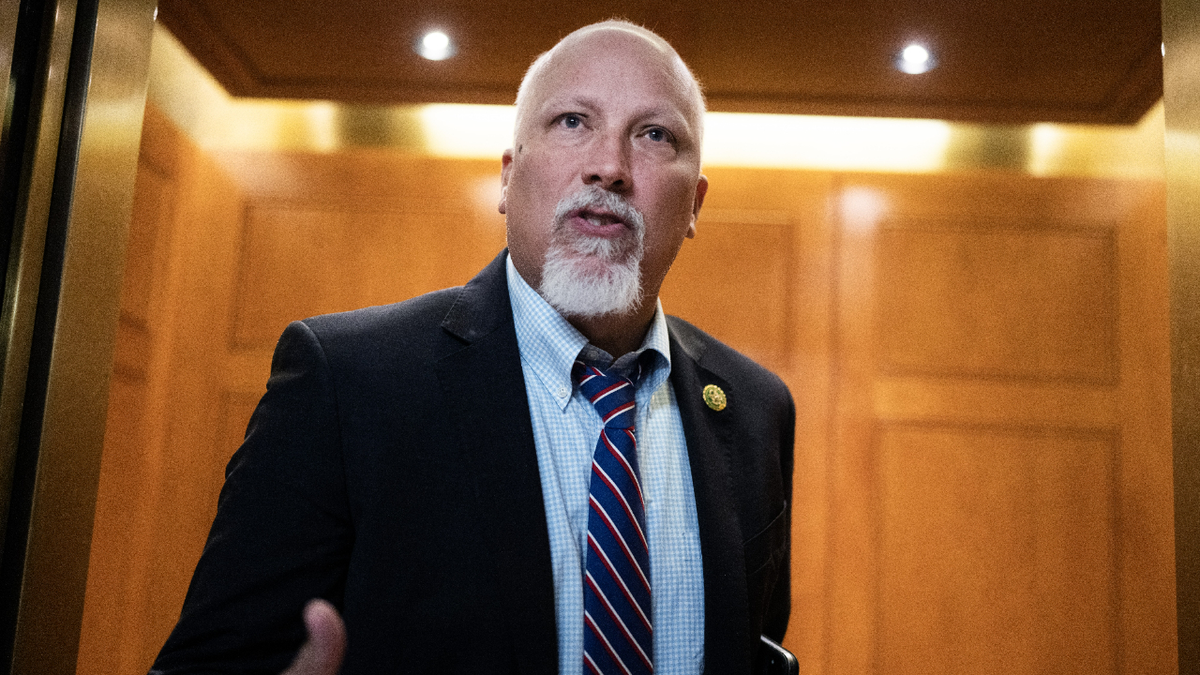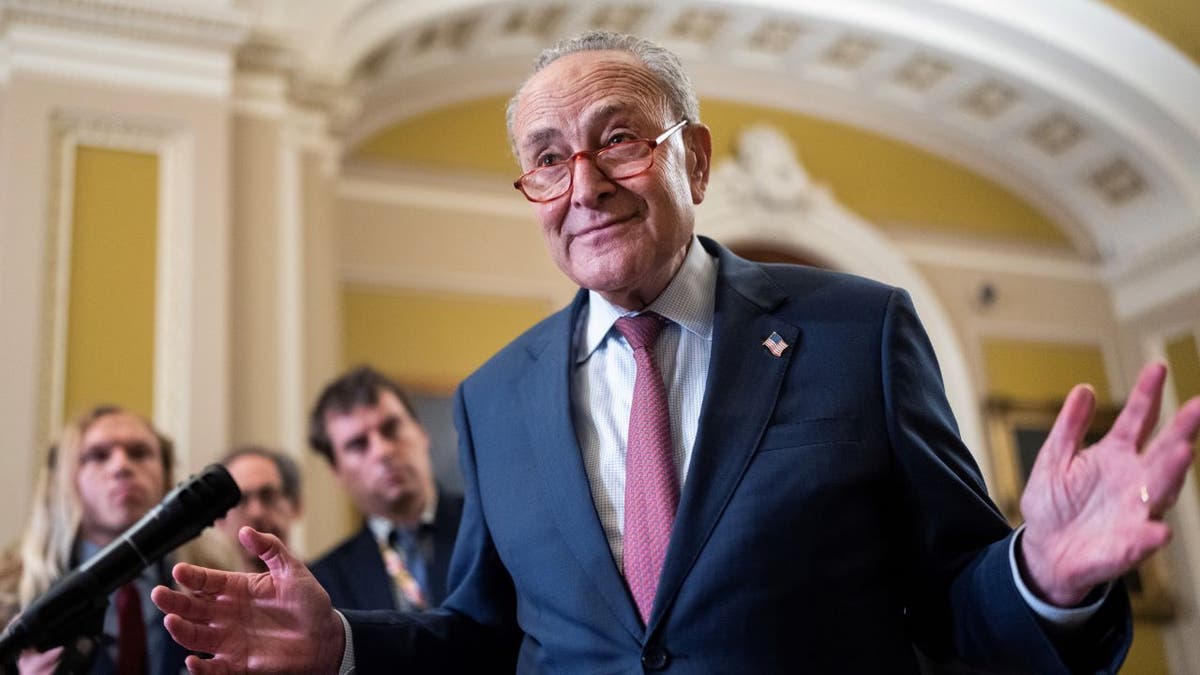Democrat support critical for Johnson’s plan to avoid shutdown amid growing GOP opposition
Speaker Mike Johnson, R-La., is going to need help from House Democrats to pass his plan for averting a government shutdown this week.
Johnson is facing the first big legislative test of his speakership as the deadline to fund the federal government, Nov. 17, rapidly approaches.
He unveiled a possible solution on Saturday in the form of a short-term government funding extension known as a continuing resolution (CR). However, its lack of spending cuts is threatening to bring deep cracks within the House GOP conference back to the surface, forcing the majority of Republicans to once again choose between meeting GOP hardliner demands or work with Democrats.
At least five House Republicans voiced opposition to the CR as of Monday morning: Reps. Chip Roy, R-Texas, Warren Davidson, R-Ohio, Bob Good, R-Va., Marjorie Taylor Greene, R-Ga., and George Santos, R-N.Y.
SPEAKER JOHNSON DRAWS BATTLE LINES AHEAD OF GOVERNMENT SPENDING SHOWDOWN
With just a razor-thin House majority, GOP leadership can only lose four Republican votes to pass something solely on party lines.
“My opposition to the clean CR just announced by the Speaker to the [House GOP] cannot be overstated. Funding [former Speaker Nancy Pelosi, D-Calif.] level spending & policies for 75 days – for future ‘promises,’’ Roy said on Saturday.
Good similarly blamed his opposition on a lack of conservative policy concessions and spending cuts.
GOP REBELS’ FAITH IN SPEAKER JOHNSON ON SPENDING FIGHT COULD AVERT GOVERNMENT SHUTDOWN
“I am opposed to the CR that has been proposed, because it contains no spending reductions, no border security, & no policy wins for the American people. I am committed to working with Speaker Johnson & my House colleagues to chart a better path forward for our country,” he said on Monday.
However, adding such cuts and riders to a CR would make it a nonstarter in the Democratically held Senate.

Both chambers of Congress need to agree on a path forward by Nov. 17 to avoid a shutdown. The central point both agree on is that some kind of temporary extension is needed to give lawmakers a chance to cobble together fiscal year 2024 spending priorities.
Johnson’s plan would create two separate deadlines for funding different parts of the government to set up more targeted goals to work toward.
It first forces lawmakers to reckon with some of the traditionally less controversial appropriations bills — those concerning military construction and Veterans Affairs; Agriculture; Energy and Water; Transportation and Housing and Urban Development. The remaining eight appropriations bills must be worked out by Feb. 2.
SPEAKER JOHNSON ROLLS OUT PLAN TO AVOID GOVERNMENT SHUTDOWN, PREVENT ‘SPENDING MONSTROSITY’
Several Democrats have already decried it, but the House Democratic leadership has yet to specifically come out against Johnson’s plan.
Democrats had been publicly opposed to his idea of staggering deadlines, preferring a straightforward single “clean” funding extension. However, the lack of spending cuts is likely to win support of at least several left-wing lawmakers.

House GOP leaders are expected to hold at least a procedural vote to advance the bill on Tuesday.
Divisions over spending have been one of the main flashpoints in a heavily fractured House GOP conference. Putting a clean CR on the floor cost ex-Speaker Kevin McCarthy, R-Calif., his job.
However, while Johnson appears to have started his tenure with more goodwill than the previously ousted leader, the current CR fight is beginning to expose those same cracks.
Freedom Caucus Chair Scott Perry, R-Pa., a key leader on the right, suggested Monday morning that he was also unhappy with Johnson’s plan: “I will not support a status quo that fails to acknowledge fiscal irresponsibility, and changes absolutely nothing while emboldening a do-nothing Senate and a fiscally illiterate President.”
Read the full article Here


